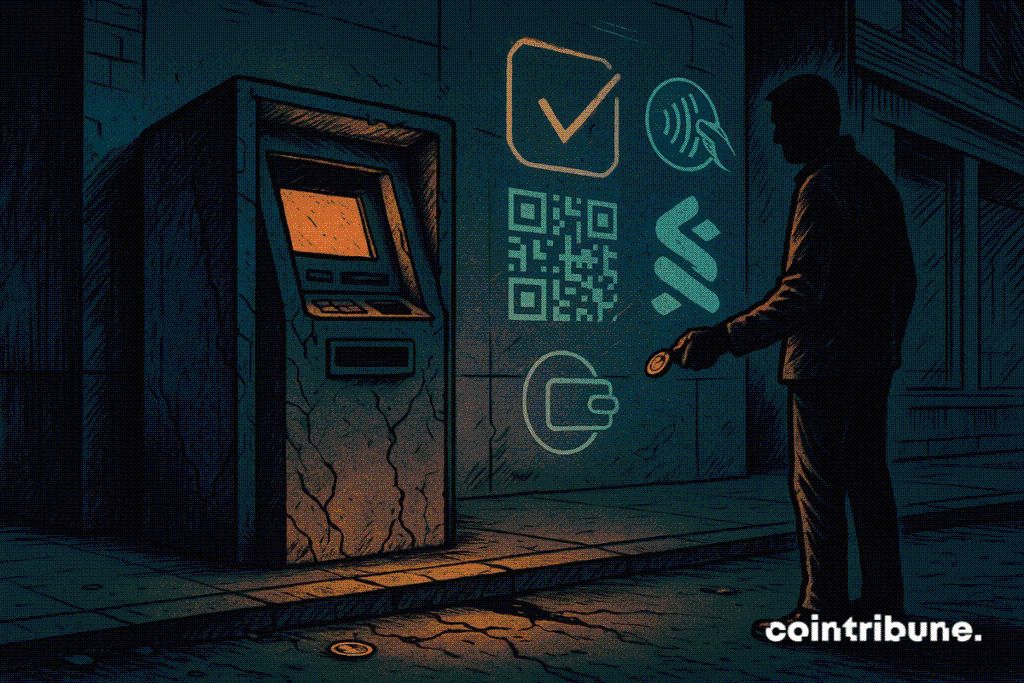Standard Chartered Chief Calls Cash Obsolete At Hong Kong Fintech Week
While central banks accelerate their digital currency projects, a statement disrupts the financial landscape : “money will be entirely digital”. These words, spoken by Bill Winters, CEO of Standard Chartered during the Hong Kong FinTech Week 2025, outline the contours of a cashless future anchored on the blockchain. This is not just a technical evolution, but a structural shift in the global monetary system, which major institutions now seem to consider inevitable.

In brief
- Standard Chartered CEO Bill Winters announces that “money will be entirely digital,” predicting the end of cash.
- This statement, made during Hong Kong FinTech Week 2025, points to a complete transformation of the global monetary system.
- According to Winters, all transactions will eventually be settled via blockchain, requiring a full overhaul of financial infrastructures.
- Hong Kong is praised as an ideal testing ground, thanks to its balance between fintech innovation and a robust regulatory framework.
Towards a cashless world : Standard Chartered’s radical vision
It was during a panel organized at the Hong Kong FinTech Week 2025 that Bill Winters, CEO of Standard Chartered, stated that the future of money will be entirely digital, while the banking institution sees Bitcoin at $135,000 by December .
In his words : “all transactions will eventually be recorded on blockchains, and money will be entirely digital”. This statement leaves no doubt about the direction taken by the British bank, one of the most influential in Asia, Africa, and the Middle East.
Through this statement, Winters painted a picture of a global overhaul of the monetary system, with a deep reconfiguration of the mechanisms for value circulation.
In his speech, Winters emphasized the need to actively experiment, acknowledging that the path to this total transition is not yet paved. He highlighted Hong Kong’s privileged position, which he sees as a model of regulated financial innovation. According to him, these are the ideal conditions to test the foundations of a new monetary system. He summarized his thinking in three key points :
- The blockchain as the foundation of future financial transactions : according to Winters, all transfers will eventually take place on blockchains ;
- The complete digitalization of currency : the disappearance of cash is no longer a hypothesis, but an expected, natural evolution ;
- Hong Kong as a privileged testing ground : Winters stated that “Hong Kong has already asserted its leadership position, and I have no reason to think that will change”, praising the balance between technological innovation and regulatory rigor established by local authorities.
Hong Kong, a technological laboratory supported by banking giants and Beijing
Beyond the technological vision expressed by Standard Chartered, another major player, HSBC, revealed a complementary dimension : Hong Kong’s structural and strategic potential.
Georges Elhedery, the group’s CEO, took advantage of the same event to recall the bank’s commitment to local development, announcing a massive investment project : $13.6 billion to privatize Hang Seng Bank , one of its regional subsidiaries. “This summarizes the confidence and conviction we have in the future of financial and technological innovation in Hong Kong”, he declared .
He also highlighted HSBC’s efforts to invest in the future of innovation, notably through a partnership with the Hong Kong University of Science and Technology, aimed at training the talents who will build tomorrow’s finance.
Another significant contribution came from Paul Chan Mo-po, Hong Kong’s Secretary for Finance. He placed the city in its unique geopolitical context. Asked whether Hong Kong could one day surpass Switzerland as the world’s premier cross-border wealth management center, Chan confidently replied : “we have a remarkable ecosystem, quality products, professional services. Moreover, mainland China supports us. It has a huge population and substantial resources, which strengthens our confidence”.
This statement reminds us that Hong Kong’s major asset also lies in its connection to mainland China, which possesses colossal financial resources.
In this dynamic of total currency digitalization, bitcoin stands out as a pioneer. The first asset to demonstrate the feasibility of a decentralized global payment system, it has embodied this technological breakthrough for over a decade, which traditional institutions are beginning to integrate.
Standard Chartered’s declaration marks a turning point. Indeed, the total digitalization of money is no longer a hypothesis, but an assumed trajectory as evidenced by the digital euro project . Between technological ambitions and geopolitical realities, Hong Kong establishes itself as a catalyst for this mutation, whose effects will sustainably redefine the global financial architecture.